Valerie Hayot-Sasson
Flight: A FaaS-Based Framework for Complex and Hierarchical Federated Learning
Sep 24, 2024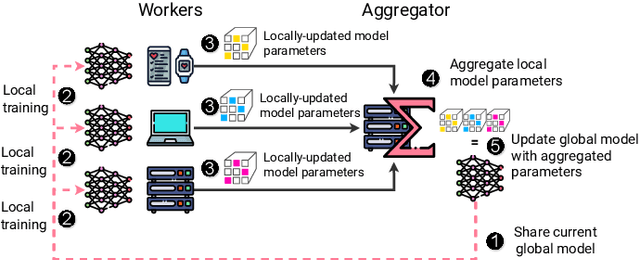

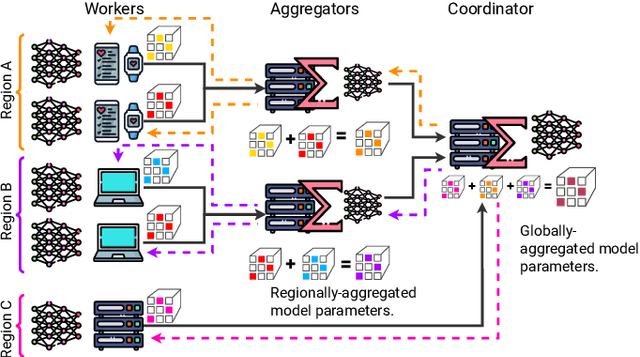
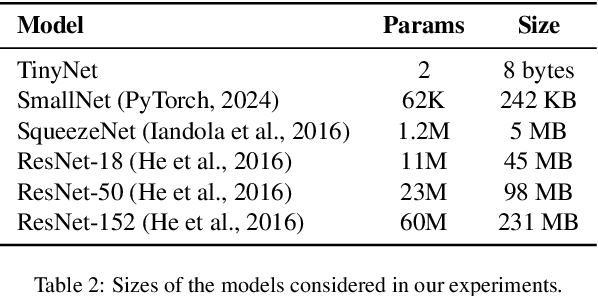
Abstract:Federated Learning (FL) is a decentralized machine learning paradigm where models are trained on distributed devices and are aggregated at a central server. Existing FL frameworks assume simple two-tier network topologies where end devices are directly connected to the aggregation server. While this is a practical mental model, it does not exploit the inherent topology of real-world distributed systems like the Internet-of-Things. We present Flight, a novel FL framework that supports complex hierarchical multi-tier topologies, asynchronous aggregation, and decouples the control plane from the data plane. We compare the performance of Flight against Flower, a state-of-the-art FL framework. Our results show that Flight scales beyond Flower, supporting up to 2048 simultaneous devices, and reduces FL makespan across several models. Finally, we show that Flight's hierarchical FL model can reduce communication overheads by more than 60%.
Employing Artificial Intelligence to Steer Exascale Workflows with Colmena
Aug 26, 2024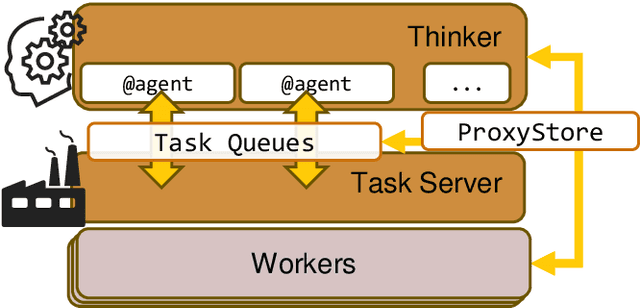
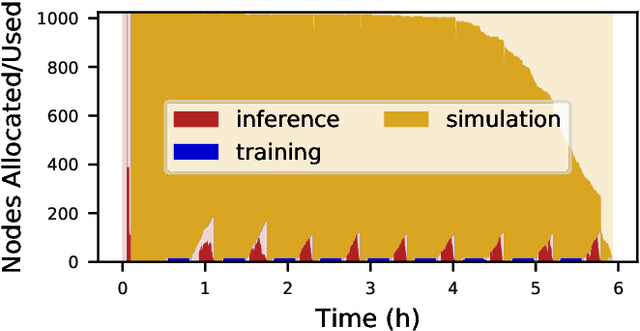
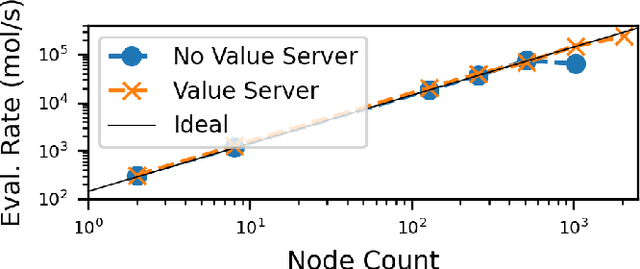
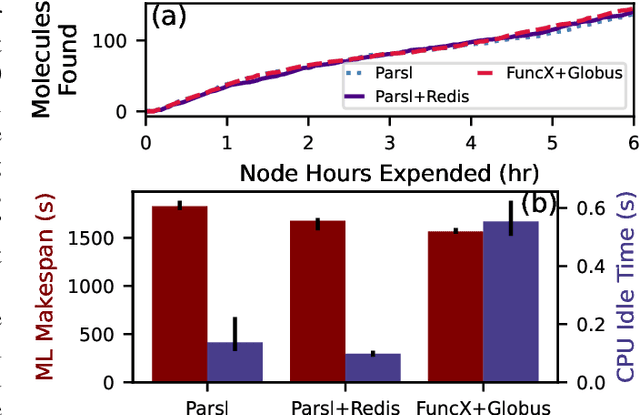
Abstract:Computational workflows are a common class of application on supercomputers, yet the loosely coupled and heterogeneous nature of workflows often fails to take full advantage of their capabilities. We created Colmena to leverage the massive parallelism of a supercomputer by using Artificial Intelligence (AI) to learn from and adapt a workflow as it executes. Colmena allows scientists to define how their application should respond to events (e.g., task completion) as a series of cooperative agents. In this paper, we describe the design of Colmena, the challenges we overcame while deploying applications on exascale systems, and the science workflows we have enhanced through interweaving AI. The scaling challenges we discuss include developing steering strategies that maximize node utilization, introducing data fabrics that reduce communication overhead of data-intensive tasks, and implementing workflow tasks that cache costly operations between invocations. These innovations coupled with a variety of application patterns accessible through our agent-based steering model have enabled science advances in chemistry, biophysics, and materials science using different types of AI. Our vision is that Colmena will spur creative solutions that harness AI across many domains of scientific computing.
Cloud Services Enable Efficient AI-Guided Simulation Workflows across Heterogeneous Resources
Mar 15, 2023Abstract:Applications that fuse machine learning and simulation can benefit from the use of multiple computing resources, with, for example, simulation codes running on highly parallel supercomputers and AI training and inference tasks on specialized accelerators. Here, we present our experiences deploying two AI-guided simulation workflows across such heterogeneous systems. A unique aspect of our approach is our use of cloud-hosted management services to manage challenging aspects of cross-resource authentication and authorization, function-as-a-service (FaaS) function invocation, and data transfer. We show that these methods can achieve performance parity with systems that rely on direct connection between resources. We achieve parity by integrating the FaaS system and data transfer capabilities with a system that passes data by reference among managers and workers, and a user-configurable steering algorithm to hide data transfer latencies. We anticipate that this ease of use can enable routine use of heterogeneous resources in computational science.
 Add to Chrome
Add to Chrome Add to Firefox
Add to Firefox Add to Edge
Add to Edge